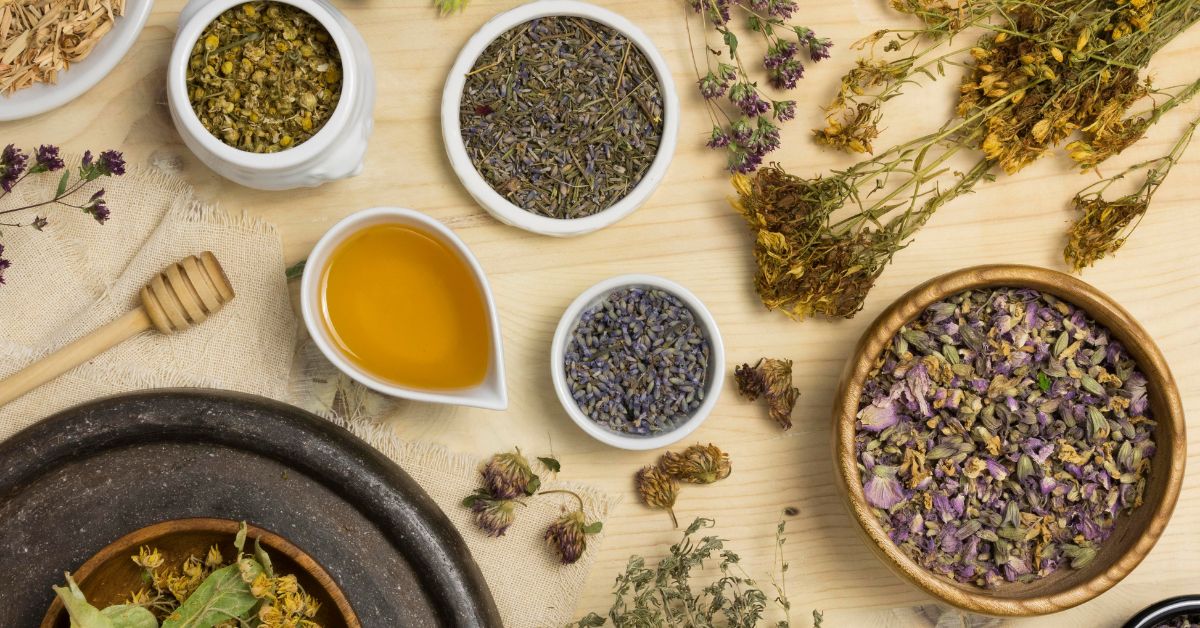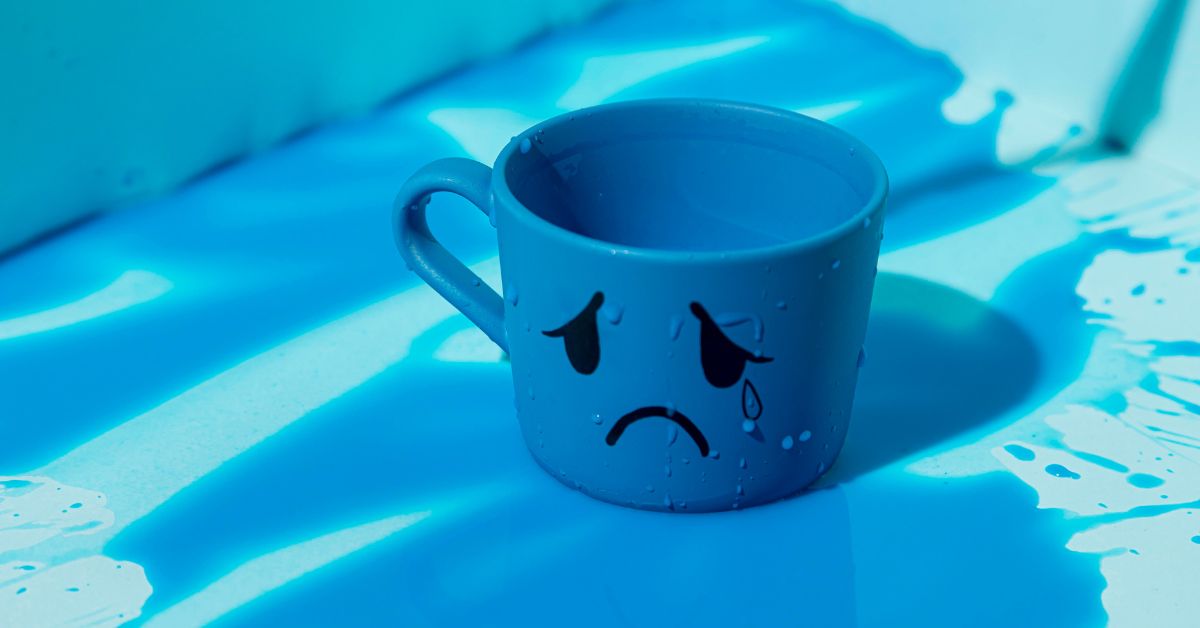Each decision you make whether dietary, exercising, not exercising, stressing, or relaxing, all cascade and affect virtually every aspect of hormonal health. Poor decisions lead to worse symptoms, then these symptoms exacerbate other issues.
For example, poor sleep triggers junk food cravings. Giving in to junk food cravings leads to worse hormonal health.
Poor sleep also encourages people to drink more caffeine to try and feel awake, which concurrently hurts their sleep. And poor sleep negatively impacts these same hormones.
This cycle goes on in perpetuity. But don’t get discouraged. Start with fixing one thing at a time, and gradually you’ll get to where you want to be.
The 45 suggestions on this list include the following:
- 10 lifestyle changes, 3 of which contain sub-items and aren’t necessarily part of the 45 suggestions
- 20 herbs, vitamins, minerals, and supplements proven to optimize some form of hormone in the human body
- 10 proven sleep hygiene tips
- 8 proven ways to manage stress

Improve your diet and reduce your consumption of highly-processed foods
Implementing a healthy diet is one low-effort change you can make today that can have a cascading effect on all other areas of your life (including hormonal balance) almost immediately.
The traditional western diet has been shown to negatively impact body composition and may contribute to hypogonadism (low testosterone).
The topic of diet’s role in hormonal balance is dense and necessitates an entirely separate article. But, you can simplify this area of your life by following the 80/20 rule. Eat 80% of your calories from minimally processed whole foods, and 20% of your calories from whatever you want.
Lastly, try to maintain a balanced micronutrient profile and macronutrient profile. A balanced diet with a variety of whole foods should cover most micronutrient deficiencies. But make sure to prioritize getting sufficient protein, carbs, and fat. And try not to overdo any one area in particular.
This article from MyFitnessPal is a great place to start. The MyFitnessPal app allows you to get a decent bird’s eye view of your micronutrient and macronutrient intake summary.

Take advantage of foods, vitamins, minerals, herbs, and supplements to balance hormones
There are countless vitamins, minerals, herbs, and supplements that a healthy diet just can’t replace when it comes to hormonal health. Most of these natural remedies are easily accessible over the counter and don’t require a prescription. Our top recommended list includes:
- Tongkat Ali – Eurycoma longifolia Jack (Longjack)
- Ashwagandha – Withania somnifera (Indian Ginseng)
- Fenugreek – Trigonella foenum-groecum
- Shilajit – Asphaltum Punjabianum
- Maca Root – Lepidium meyenii (Peruvian Ginseng)
- Rhodiola rosea L
- Pine bark extract – Pinus pinsater
- Panax Ginseng
- B Vitamins
- Boron
- Vitamin D3
- Vitamin K2
- Zinc
- Electrolytes
- Omega 3 fish oil
- Creatine
- Probiotics
- Beef liver
- Garlic
- Onion

Practice cold exposure
Cold exposure involves exposing your body to cold temperatures to activate and regulate various systems in the body. This includes cold baths, cold showers, ice baths, cold plunges, cryotherapy, and more.
Multiple studies have shown cold exposure has the ability to positively effect and modulate hormones, specifically thyroid hormones, epinephrine, dopamine, and norepinephrine.
Cold exposure produces long-lasting positive changes that happen almost immediately in mood, anxiety, stress, and recovery. New research even suggests that in combination with breathing techniques like those taught by Wim Hof, one can directly affect the autonomic nervous system, something previously thought to be scientifically impossible.
P.S.: added bonus of the physiological effects makes cold exposure and cold showers a great hangover cure.

Learn proper sleep hygiene
Sleep hygiene is another dense topic, but a necessary inclusion. Sleep is the foundation of your health and ultimately sets the tone for the rest of your day. Bad sleep has been shown to consistently result in reduced testosterone levels.
Sleep hygiene is simple, but not always easy to follow. Optimizing sleep requires dedication and a conscious decision to improve it.
It will require forgoing drinking, using drugs, smoking, late nights, parties, and staying up late on a regular basis. Basic sleep hygiene will help optimize your circadian rhythm and will leave you waking up with abundant energy like you’re a kid again.
A simplified guide to improving your sleep hygiene and sleep habits:
- Don’t use your bed for anything other than sleep and sex. You want to train your brain to associate your bed with sleep
- Avoid blue light from phones and screens 2 hours prior to bed. If this isn’t manageable for you, try using blue light glasses, turning on “night shift” on your mobile devices, and watching tv from several feet away
- Stop consuming caffeine within 4 hours of waking
- Stop nicotine use as early as possible in the day (or better yet, altogether)
- Use smart bulbs like Philips hue color bulbs to simulate the setting sun inside your home. These bulbs can change in color temperature which encourages the production of melatonin
- Take a hot shower or use the sauna before bed
- Perform rigorous exercise at some point in the day to help quiet the mind. Preferably more than 2 hours before bed
- Take a magnesium glycinate and/or magnesium L-threonate supplement before bed for a shorter sleep onset latency
- Take an absorbable and bioavailable form of zinc before bed for a shorter sleep onset latency
- Eat a high-carb meal before bed for better quality and duration of sleep

Learn to manage or reduce stress effectively
Managing stress effectively is another lifestyle factor that can be directly improved by giving more attention to other poor habits you may be making. Poor sleep and diet certainly make managing your stress effectively incredibly difficult.
Excessive caffeine, drug, and alcohol intake contribute to issues with stress management too. Are you starting to see a pattern?
How to handle stress naturally
- Seek help through cognitive behavior therapy (CBT)
- Practice meditation and breathing exercises
- Maintain healthy sleep habits
- Maintain healthy dietary habits
- Exercise/yoga
- Be more social
- Be more assertive and expressive
- Reduce caffeine intake

Get sufficient movement and exercise
Exercise is one of nature’s oldest medicines. This is one of the areas of life your life that if improved and given sufficient attention and energy can have a ripple effect on all other areas of your overall well-being.
Sufficient movement and exercise have been shown to improve sleep quality, sleep duration, and mood, lower stress, reduce instances of anxiety, and act as a natural antidepressant that may even encourage you to use fewer vices day to day.
Something interesting about beginning to exercise is that people often feel more inclined to improve other areas of their life to further compound the benefits they get from it. It’s hard to explain, but a real phenomenon.

Reduce excessive caffeine intake
Caffeine is a strange drug. What begins as an innocent morning ritual, inspired by scents of freshly roasted coffee beans, can slowly turn into a full-fledged dependency most of us deny having.
Caffeine’s social acceptability makes people overlook the harm it could be doing to them in the long term. This drug profoundly affects the body’s various processes, central nervous system, and autonomic nervous system.
Caffeine begins by inducing a fight or flight response in the body by increasing cortisol levels. Next, it puts heavy stress on the adrenal glands, causing a feeling of urgency and anxiety. Some biohackers implement ashwagandha in an attempt to combat this caffeine-induced anxiety.
Coffee is taking the wheel on your hormonal profile and sending it into overdrive. When cortisol and adrenaline spike, the body may have a harder time keeping those hormones in check.
This results in weight fluctuation, dehydration, poor skin health, acne, breakouts, dry skin, excessive sebum production, wrinkles, and worsened sleep quality.
Not to mention, caffeine’s half-life can be anywhere from 2-9 hours depending on your individual metabolism. That means you could have caffeine coursing through your veins at night while trying to sleep (even if you don’t “feel it”).
Coffee and caffeine are not doing any favors for your hormonal optimization. If you’re dependent on a morning routine or exogenous substance to get you going in the morning, consider a mushroom tea, or mushroom supplement. These can have similar effects to caffeine yet are generally non-stimulating.

Reduce excessive alcohol intake
Alcohol is another compound with vast potential to cause harm to the body’s various processes.
Firstly, what most people don’t understand about alcohol is that it shuts off your body’s ability to burn off calories consumed. Instead, calories consumed with alcohol tend to be immediately stored as fat.
This side effect of alcohol contributes further to its high-calorie density and is arguably more responsible for making people gain weight rather than the alcohol itself.
Second, alcohol is detrimental to REM sleep, which is necessary for optimal hormone levels. REM sleep is the restorative part of sleep that helps us to recover and feel rested.
Thirdly, alcohol induces an immediate decrease in LHRH, LH, testosterone, and progesterone. Additionally, it causes an increase in estradiol and FSH. All of these alcohol-induced fluctuations have been shown to contribute to infertility, menstrual irregularity, and hypogonadism.
Finally, alcohol’s depressant effects on the body induce a rebound effect on the body that causes what some call “hangxiety”. Hangover anxiety and stress are the body trying to reach a state of equilibrium in its chemical composition.
By no means is this the end of the negative side effects of alcohol. But do consider limiting your consumption of it to 2 drinks per week maximum.

Minimize or eliminate the use of harmful drugs
Medicating with recreational drugs such as meth, cocaine, heroin, opiates, opioids, and even marijuana can contribute to lower serum testosterone levels and imbalances of other important hormones.
We are not anti-drug here. There are certainly good drugs that have very little physiological downsides and a high potential for psychological upsides. For example, psilocybin mushrooms, LSD, Ketamine, and MDMA.
However, some drugs have serious potential to not only ruin your hormonal profile but throw off the balance of your sleep, diet, exercise, motivation, interpersonal relationships, job, and so much more.

Reduce exposure to endocrine-disrupting chemicals
Endocrine-disrupting chemicals (EDCs) warrant an entirely separate article. But a short introduction to their potential for harm seems appropriate.
Endocrine-disrupting chemicals come in many forms and in many mediums. They are all around us at all times. Thanks to the work of people like Shanna Swan, author of “The Count Down: How Our Modern World Is Threatening Sperm Counts, Altering Male and Female Reproductive Development, and Imperiling the Future of the Human Race”, we have a better understanding of how these chemicals interface with our body’s natural processes and create hormonal imbalances.
Shanna’s book illuminates the strong correlation between exposure to EDCs and the recent reduction of sperm counts and female fertility, prevalence of gender dysphoria, stunted sexual development, and overall health.
These petrochemicals may have estrogenic effects on the body and should be avoided at all costs. Some examples of EDCs are:
- BFRs
- PCBs
- Phthalates
- BPA
- Lead
- Atrazine
- Glyphosate
- PFAS
We plan to post some resources to help avoid EDCs in the future, but for now, consider reading Shanna Swan’s book and also reading this resource on where EDCs are found.
Start removing EDCs from your life by getting a non-toxic cookware set such as Caraway, as most non-stick cookware is riddled with Teflon (a popular EDC).
Summary
Various lifestyle factors and habits can have detrimental effects on optimal hormone levels. Vitamins, minerals, supplements, herbs, adaptogens, exercise, sleep, and stress management can all help to manage or even boost hormone levels naturally.
Proactive behaviors such as avoiding endocrine-disrupting chemicals, avoiding harmful recreational drugs, avoiding excessive alcohol intake, and avoiding excessive caffeine intake can all contribute to a healthier environment in the body that encourages natural hormone optimization.
There are plenty of ways to have fun without drugs and alcohol. And there are so many reasons to ditch your morning cup of coffee and give your adrenals a rest so you can experience anxiety-free abundant energy all over again.
References and resources:
- Associations of Sleep with Food Cravings, Diet, and Obesity in Adolescence
- Testosterone-Associated Dietary Pattern Predicts Low Testosterone Levels and Hypogonadism
- Cold Exposure Distinctively Modulates Parathyroid and Thyroid Hormones in Cold-Acclimatized and Non-Acclimatized Humans
- Influence of cold exposure on dopamine content in rat brown adipose tissue
- The science behind the Wim Hof Method
- Essential Guide to Macros
- Effect of 1 Week of Sleep Restriction on Testosterone Levels in Young Healthy Men
- Interrelationship between Sleep and Exercise: A Systematic Review
- Effects of Exercise and Physical Activity on Anxiety
- The Benefits of Exercise for the Clinically Depressed
- The Effects of Alcohol on Quality of Sleep
- Pathophysiology of the Effects of Alcohol Abuse on the Endocrine System
- How Our Modern World Is Threatening Sperm Counts, Altering Male and Female Reproductive Development, and Imperiling the Future of the Human Race
- Common EDCs and Where They Are Found


Can you be more specific about the content of your article? After reading it, I still have some doubts. Hope you can help me.